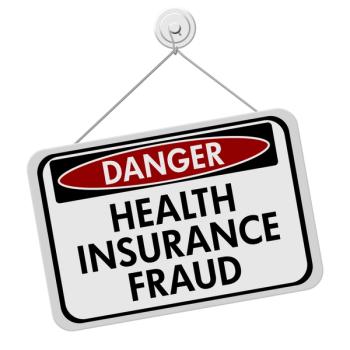
Are you a workaholic?
Most physicians work hard, but do you work compulsively? If so, here's what to do about it.
Are you a workaholic?
By Gail Garfinkel Weiss
Senior Editor
Most physicians work hard, but do you work compulsively? If so, here's what to do about it.
You know the type. You might even be the typethe doctor who routinely puts in 12-hour days, never takes vacations, can't bear to delegate, feels anxious and purposeless when not on the job, etc.
"Workaholism in physicians represents a continuation of our lifestyle since college," says psychiatrist Gerald P. Perman, a member of the Medical Society of the District of Columbia Physician Health Committee. "We have to work long hours to succeed in premed and med school. Then, during residency, we work as long as 36 hours at a stretch. It's no surprise that this nose-to-the-grindstone pattern continues."
But working more isn't synonymous with working better. In fact, the opposite is often true: "Most workaholics tend to create work for themselves that isn't needed or useful to begin with," says internist Lee Lipsenthal, founder of Heal Thyself Programs in San Anselmo, CA. That's not good for you or your patients. "Workaholics often don't connect well with patients because they're focusing on the next 12 things they want to do," says Lipsenthal. "In essence, workaholics are in a revved-up state of burnout. Instead of functioning efficiently, they're likely to be irritable and rushed. Therefore, their decision-making, diagnostic, and treatment-planning capacities are diminished."
A case in point, Perman says, is the physician who, upon learning that a patient had complained about his care, replied, "How could any of my patients find fault with my work? I work seven days a week and haven't taken a vacation in years."
Hard worker vs workaholic
"A workaholic has lost the ability to slow down and find value in things other than work," says Salem, OR, psychiatrist Ronald L. Hofeldt.
Work addiction, unlike alcoholism and other compulsive behaviors, tends to bring status, financial rewards, and even awe. Small wonder, then, that workaholic doctors don't realize they have a problem until a crisis occursa spouse leaves, a neglected child gets into trouble, a serious health problem develops.
Workaholics don't generally know that they're overdoing it. They tend to think they're not working hard enough, notes psychiatrist Jeffrey Kahn, president of WorkPsych Associates, an executive management consulting firm in New York.
So how do you determine if you're a workaholic? Take the work addiction risk test
How to recover from workaholism
"Start by asking yourself why you're overworking," Lipsenthal advises. Most compulsive workers are driven by anxieties and fears about things like not being good enough or not making enough money, or making an error, or being sued.
Next, think about where your time is going, says Jeffrey Kahn, co-editor of Mental Health and Productivity in the Workplace: A Handbook for Organizations and Clinicians (Jossey-Bass, 2003). "Are you spending enough time with your family and pursuing personal interests? How about on the aspects of your work that you like, as opposed to the parts that take up most of your day?"
To wean yourself off the work treadmill, try some of the following:
Make one change, today. "It's hard to reverse the habits of a lifetime, especially well-rewarded habits," says Hofeldt. "Begin by taking incremental steps. Decide what you can do today that will make a difference. It could be meeting a friend for lunch, leaving the office on time, or opting out of a committee."
Nurture your relationships. "Pay attention to your spouse's emotional needs," Gerald Perman advises. "Take walks with your partner and plan romantic dinner dates. Spend time with your children."
Schedule some leisure. "Workaholics are often driven by the sense that it isn't noble to take time for oneself. They're confused by the difference between self-interestwhich helps us survive and thriveand being selfishwhich is egocentric," says Hofeldt.
Lipsenthal counseled a physician who has a husband, children, and a busy practice. "She fantasized about spending a day reading a book and sipping a Starbucks coffee. She wanted time away from work and familybut feared that things would fall apart if she indulged herself," Lipsenthal says. "So we worked toward her having a 'Starbucks day.' It turned out that her husband was happy to take the kids out for the day, and the office didn't implode in her absence."
Do what the Joneses do. "Participate in your son's Cub Scout den, coach and support your daughter's soccer games, join the PTA," recommends Perman.
A caveat: "Compulsive workers who get involved in community activities tend to transfer workaholism to community helpism," says Lipsenthal. "You might end up spending fewer hours in the office but excessive hours doing work for the church. It's about finding some balance, and that means spending time away from the work process."
Take care of yourself. "Workaholism contributes to physicians neglecting their own health," says Perman. "Many don't get regular physical examsthey're too busy, and they often treat themselves when they become ill.
"So get routine physicals, join a health club, or play tennis or golf. Cut back your alcohol intake if your drinking seems to be creeping up."
Delegate. "Admit that you can't do everything yourself," says Hofeldt. "Hand some tasks off to staffers, and listen to their suggestions."
Seek help. "It may be worth getting a psychiatric consultation by someone who can look at the depression and anxiety issues that might be part of the workaholism picture," says Kahn.
If you're motivated by a desire to make money, talk to a financial planner about how to manage with less income.
Other workaholism antidotes: Join a support group for workaholic physicians (contact your medical society's physician health committee), vary your routine, and set boundaries between your professional and personal life. And take vacation time; Perman recommends four to six weeks a year, but even a few days off are better than none.
In Hofeldt's words, "Medicine is a great career, but it's a terrible life if we make it our whole life."
Work addiction risk test
Gail Weiss. Are you a workaholic?
Medical Economics
Dec. 19, 2003;80:25.
Newsletter
Stay informed and empowered with Medical Economics enewsletter, delivering expert insights, financial strategies, practice management tips and technology trends — tailored for today’s physicians.






